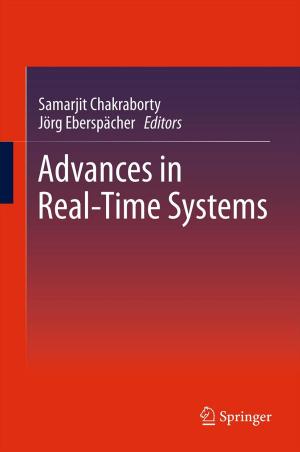Breakdown in Traffic Networks
Fundamentals of Transportation Science
Nonfiction, Science & Nature, Science, Other Sciences, System Theory, Technology, Engineering, Civil| Author: | Boris S. Kerner | ISBN: | 9783662544730 |
| Publisher: | Springer Berlin Heidelberg | Publication: | May 26, 2017 |
| Imprint: | Springer | Language: | English |
| Author: | Boris S. Kerner |
| ISBN: | 9783662544730 |
| Publisher: | Springer Berlin Heidelberg |
| Publication: | May 26, 2017 |
| Imprint: | Springer |
| Language: | English |
This book offers a detailed investigation of breakdowns in traffic and transportation networks. It shows empirically that transitions from free flow to so-called synchronized flow, initiated by local disturbances at network bottlenecks, display a nucleation-type behavior: while small disturbances in free flow decay, larger ones grow further and lead to breakdowns at the bottlenecks. Further, it discusses in detail the significance of this nucleation effect for traffic and transportation theories, and the consequences this has for future automatic driving, traffic control, dynamic traffic assignment, and optimization in traffic and transportation networks.
Starting from a large volume of field traffic data collected from various sources obtained solely through measurements in real world traffic, the author develops his insights, with an emphasis less on reviewing existing methodologies, models and theories, and more on providing a detailed analysis of empirical traffic data and drawing consequences regarding the minimum requirements for any traffic and transportation theories to be valid.
The book
- proves the empirical nucleation nature of traffic breakdown in networks
- discusses the origin of the failure of classical traffic and transportation theories
- shows that the three-phase theory is incommensurable with the classical traffic theories, and
- explains why current state-of-the art dynamic traffic assignments tend to provoke heavy traffic congestion,
making it a valuable reference resource for a wide audience of scientists and postgraduate students interested in the fundamental understanding of empirical traffic phenomena and related data-driven phenomenology, as well as for practitioners working in the fields of traffic and transportation engineering.
This book offers a detailed investigation of breakdowns in traffic and transportation networks. It shows empirically that transitions from free flow to so-called synchronized flow, initiated by local disturbances at network bottlenecks, display a nucleation-type behavior: while small disturbances in free flow decay, larger ones grow further and lead to breakdowns at the bottlenecks. Further, it discusses in detail the significance of this nucleation effect for traffic and transportation theories, and the consequences this has for future automatic driving, traffic control, dynamic traffic assignment, and optimization in traffic and transportation networks.
Starting from a large volume of field traffic data collected from various sources obtained solely through measurements in real world traffic, the author develops his insights, with an emphasis less on reviewing existing methodologies, models and theories, and more on providing a detailed analysis of empirical traffic data and drawing consequences regarding the minimum requirements for any traffic and transportation theories to be valid.
The book
- proves the empirical nucleation nature of traffic breakdown in networks
- discusses the origin of the failure of classical traffic and transportation theories
- shows that the three-phase theory is incommensurable with the classical traffic theories, and
- explains why current state-of-the art dynamic traffic assignments tend to provoke heavy traffic congestion,
making it a valuable reference resource for a wide audience of scientists and postgraduate students interested in the fundamental understanding of empirical traffic phenomena and related data-driven phenomenology, as well as for practitioners working in the fields of traffic and transportation engineering.















